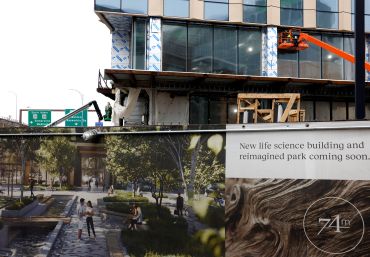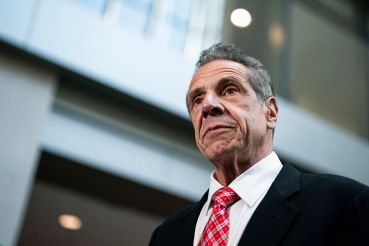How the Pandemic Has Changed Real Estate Contracts
By Sarkis Haroutunian June 28, 2021 4:00 pm
reprints
While we hope the virus will soon be a thing of the past, some contractual provisions and issues are sure to become part of real estate professionals’ new normal. As a result of lessons learned from the pandemic, most real estate agreements, such as leases, financing documents and contracts, warrant consideration of new provisions that are likely here to stay.
Force majeure.
No provision has been more scrutinized in the months following the March 2020 lockdowns than the “force majeure” clause (a provision that, under certain circumstances, can either release or postpone contractual obligations). Throughout the pandemic, practitioners have been trying to interpret, and reinterpret, force majeure clauses to determine if the pandemic qualified as a force majeure event. Conversely, if a contract did not include a force majeure provision, most everyone in California, for example, quickly became familiar with Section 1511 of the California Civil Code, which is California’s default “force majeure” statute and applies to contracts without express force majeure clauses.
Prior to 2020, it is likely that few real estate contracts expressly defined a force majeure event to include pandemics or epidemics. Today, virtually all force majeure clauses are sure to include such events and, in some cases, practitioners might consider thinking of other uncontrollable events to include — perhaps cyber attacks and, most surely, civil unrest. To that end, due to the heightened sense of the unexpected, there is a growing trend to broaden the definition of force majeure as much as possible.
Effects of governmental orders.
Authorities generally enacted two types of ordinances during the pandemic: stay-at-home orders requiring non-essential businesses to temporarily limit or close operations; and eviction moratoria, prohibiting landlords from taking steps to evict non-paying tenants and affording qualifying commercial tenants the right to defer rental obligations until the end of the emergency period.
As a result of lessons learned from the stay-at-home orders, retail tenants have become emboldened in negotiations, requiring rental abatement in leases should governmental orders result in their inability to operate entirely or at full capacity. This trend started with large, multi-location restaurants and quick-service tenants, and is now a frequent ask even with smaller retail tenants, such as independent yoga studios and gyms. Going forward, tenant abatement rights that were written specifically with COVID-19 in mind may apply to use and occupancy limitations from any governmental order in order to hedge against future shutdowns. The same concept is applicable to lease provisions related to common area expenses at multi-tenant projects.
By now, both landlords and tenants are aware of the patchwork of eviction moratoria enacted. Though challenged in many jurisdictions on varying legal bases, parties have been required to abide by the moratoria rules and for the most part come to understand the protections (and restrictions) the moratoria put in place.
Unable to pursue non-paying commercial tenants qualifying for the protections, landlords began looking to lease guarantors to collect back-due rent. Going forward, landlords negotiating leases will ensure that a commercial lease guaranty does not restrict them from pursuing claims against a guarantor in circumstances where applicable law might shield a subject tenant from making timely rent payments.
Blocking events.
The COVID economy meant less people shopping in-person and instead having almost everything delivered, whether by mail carrier or meal and grocery-delivery services. As a result of the increased demand for delivery, the strain on our nation’s infrastructure created many delays.
Another new pandemic provision that will be standard in most purchase and sale agreements and financing transactions are events that may delay a transaction’s closing.
Missing a closing date can have significant financial ramifications. Unforeseen developments that cause a delay in delivering packages to the escrow holder, buyer, seller, lender or legal counsel, or result in the closure of the escrow holder’s or title company’s offices, that impact a closing date or other key performance date are now sometimes addressed in agreements. This so-called “blocking event” provision is also sometimes applied to conditions that prevent a lender or buyer from wiring funds.
The new provision provides that the closing date or other key performance date is extended until two business days following the cure of the blocking event.
Just as the term “social distancing” will continue to be part of our vernacular, these and other contractual provisions will be commonplace in real estate contracts.
Sarkis Haroutunian is an attorney in Greenberg Glusker’s Real Estate Group.


